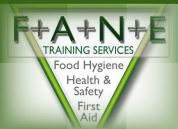Introduction
In all settings where drugs are stored and administered for the benefits of clients there are laws governing the settings and all third parties.
The Misuse of Drugs Act (1971)
Prohibits the possession, supply and manufacture of medicinal and other products except where such possession, supply and manufacture has been made legal by the Misuse of Drugs Regulation 2003.
Ø Covers the Classification of Drug by Class
Ø Class denotes their hazardous potential as regards addiction
Class A
Heroin, Methadone, Remifentanil, Dihydroetorphine, Opium, Cocaine, Crack LSD, Cannabis Oil, Ecstasy, Processed Magic Mushrooms
Any Class B drug that is injected
Class B
Amphetamines (Speed)
Barbiturates
Codeine
DF118s
Class C
Mild Amphetamines (e.g. Slimming tablets)
Cannabis
Tranquillisers (Temazepam, Valium
Zolpidem) (see next slide)
Certain Anabolic
Steroids
GHB - Gammahydroxy- butyrate
Special Notes
Tranquillisers: Temazepam, Valium and Zolpidem, etc
Ø It is not illegal to use them but it is illegal to give/sell them for non-medical use (in this case, they are considered Class C drugs)
Ø It is illegal to sell/supply (without a licence) any prescribed drug for non-medical use
The Misuse of Drugs Regulations 2003
This Regulation classifies Controlled drugs into five schedules according to the different levels of control given to them
The class of drug does not necessarily indicate which schedule it should be in
Schedule 1
Halluninogenic Drugs (LSD & Cannabis)
A license is required to hold these drugs and a pharmacist cannot hold them except where exemption has been granted
Schedule 2
Opiates (Diamorphine, Morphine, Remifentanil, Dihydroetorphine and Methadone)
Cocaine and Pethidine
Major Stimulants (Amphetamines)
Ø Can only be dispensed by a pharmacist on production of a handwritten authorised prescription
Ø Only a qualified medical person can administer these drugs
Ø Storage comes under strict Controlled Drug requirements
Ø Records should be maintained in a Controlled Drug Register
Schedule 3
Barbiturates (Temazepam, Phenobarbitone)
Ø Can only be dispensed by a pharmacist on production of an authorised prescription
Ø Can be administered by an unqualified person but only under supervision and with training in the administration of medicines
Schedule 4
Steroids
Benzodiazepines: (except Flunitrazepam and Temazepam)
Ø Can only be dispensed by a pharmacist on production of an authorised prescription
Ø Can be administered by an unqualified person only under supervision and with training
Schedule 5
This schedule contains both non-prescription and prescription only drugs
If any preparation contains a certain controlled drug (e.g. Codeine or Morphine) they would come under prescribed drugs or available only at pharmacies
They can be administered by an unqualified person, but preferably with training in the administration of drugs
The Misuse of Drugs Regulations 2001
This regulation controls the safe storage and administration of drugs
Dispensing and Stocking of Medicines:
Nursing Homes: A Home Office Licence is required to maintain stocks of Schedule 2 and 3 Controlled Drugs
The pharmacist must ensure the home has this licence before making any supply of these drugs
Residential Homes: All controlled drugs held by a residential home must be client specific and can only be supplied by a pharmacist on an authorised prescription
A residential home cannot hold stocks of Schedule 2 or 3 Controlled Drugs
All medications within a home must be recorded, stored, handled and disposed of in compliance with the requirements of the recognised professional bodies and the local Health Authority
The Care Standards Act 2000
Under this Act, various bodies were set up to cover England, Scotland and Wales, each accountable to its own Minister for Health
The National Care Standards Commission, set up in 2000, was replaced in April 2004 by two new inspectorates:
Commission for Social Care Inspection (CSCI)
The CSCI combines the work previously undertaken by the Social Services Inspectorate, the SSI/Audit Commission joint review team and the social care functions of the National Care Standards Commission
Commission for Healthcare Audit and Inspection (CHAI)
The CHAI now includes all the current and proposed work of the Commission for Health Improvement (CHI) and the Mental Health Act Commission (MHAC), the national NHS value for money work of the Audit Commission and the independent healthcare work of the National Care Standards Commission
National Minimum Standards
The standards relating to the handling of medication within a care home promote the safety and well-being of the client and a framework of safe practice for the care worker, irrespective of whether the care worker is a registered nurse
The registered person ensures that there is a policy which all staff adhere to regarding medicines - responsible also for the policy on clients taking responsibility for their own medication (within a risk management framework)
Records must be kept of all medicines received, administered and leaving the home or disposed of
A record should be maintained of current medication for each client (including those self-administering)
Medicines in the custody of the home are handled according to the requirements of the Medicines Act 1968, guidelines from the Royal Pharmaceutical Society, the requirements of the Misuse of Drugs Act 1971
All nursing staff are to work to the UKCC Standards for administration of medicines
Controlled drugs administered by staff should be stored in a metal cupboard (complying with the Misuse of Drugs (Safe Custody) Regulations 1973)
Only a medical practitioner or registered nurse can administer medicines, including
Controlled Drugs, for clients receiving nursing care
In residential care homes, all medicines, including Controlled Drugs, (except those self-administered) must be administered by designated and appropriately trained staff
A different designated, appropriately trained member of staff must witness the administration of Controlled Drugs
National Minimum Standards
The training for care staff must be accredited and must include:
Basic knowledge of how medicines are used and how to recognise and deal with problems in use
The principles behind all aspects of the home's policy on medicine handling and records
Receipt, administration and disposal of Controlled Drugs must be recorded in a Controlled Drugs register
The Registered Manager should seek information and advice from a pharmacist regarding medicines' policies within the home and medicines dispensed for individuals in the home
Staff should monitor the condition of the client on medication and contact the GP if they are concerned about any change in condition that may be a result of medication
If a client dies, medicines must be retained for a period of seven days, in case there is a coroner's inquest
The Control of Substances Hazardous to Health Regulations (1994)
Medicines can be dangerous to health if misused, handled or stored incorrectly
Medicines are dangerous if not administered in the appropriate manner
Failure to comply with this regulation can result in prosecution
Requires employers to:
Inform, instruct and train employees regarding substances, the risks involved in their incorrect storage and management
Assess the risk to health of anyone likely to be exposed to risk from a hazardous substance
Introduce appropriate precautions to prevent or reduce identified risks
Employees must have sufficient information and training on precautions needed and emergency procedures
The Data Protection Act 1968
Any setting wanting to hold clients records on its computer should consult with the Data Protection Agency
EEC Directives
EEC Directives now govern any amendments to UK Acts and Regulations
EC legislation takes precedence over the Medicines Act
The UK Medicines Act 1968 is continually being amended and new regulations brought in to conform to any EC legislation
Medicines and Healthcare Products Regulatory Agency (April 2003) (MHRA)
Responsible for protecting public health by ensuring the safety, quality and efficiency of medicines available in the UK
In April 2003, it merged with the Medical Devices Agency responsible for the safety of medical devices, to form the MHR
Monitors existing medicines and devices and regulates all medicinal products for human use (whether new or existing) in accordance with EC directives
Responds to and monitors reports regarding allergic reactions and side effects from existing medicines
Adverse effects from drugs are reported through the yellow card scheme
GPs, pharmacists and nurses can submit yellow card reports
Care home staff should liaise with prescribers about the submission of a report, as appropriate
Royal Pharmaceutical Society of Great Britain (RPSGBB) Guidelines
The standard of record keeping should ensure that records are properly completed, legible and current, providing a complete audit trail of medication
All records must be referred back to the original prescription and not to previously held records
Nursing and Midwifery Council (NMC) - Guidelines
In principle guidelines relate to registered nurses and midwives (they are also applicable to any healthcare personnel involved in the administration of medicines)
Guidelines can be accessed and printed from the website of the NMC: www.nmc-uk.org
Policies & Procedures
Medicine rounds should be at specific times to maintain continuity in record keeping and to ensure security
Exceptions - client specific according to the requirements of the medicine (e.g. before meals) and whether there is a specific dosage regime
All adverse reactions/side effects must be reported immediately and recorded on the client's MAR
At all times, the clients privacy and dignity must be maintained




